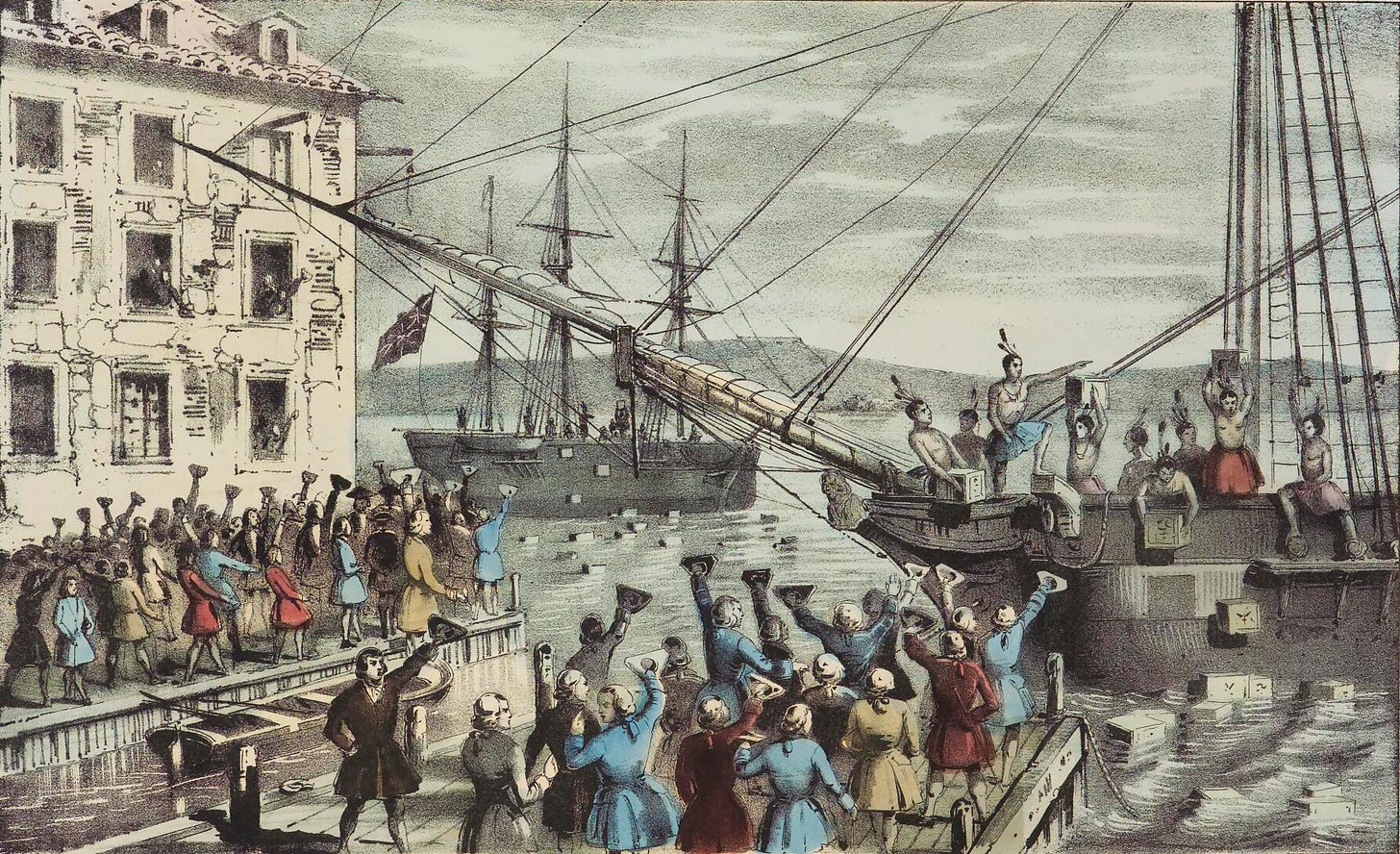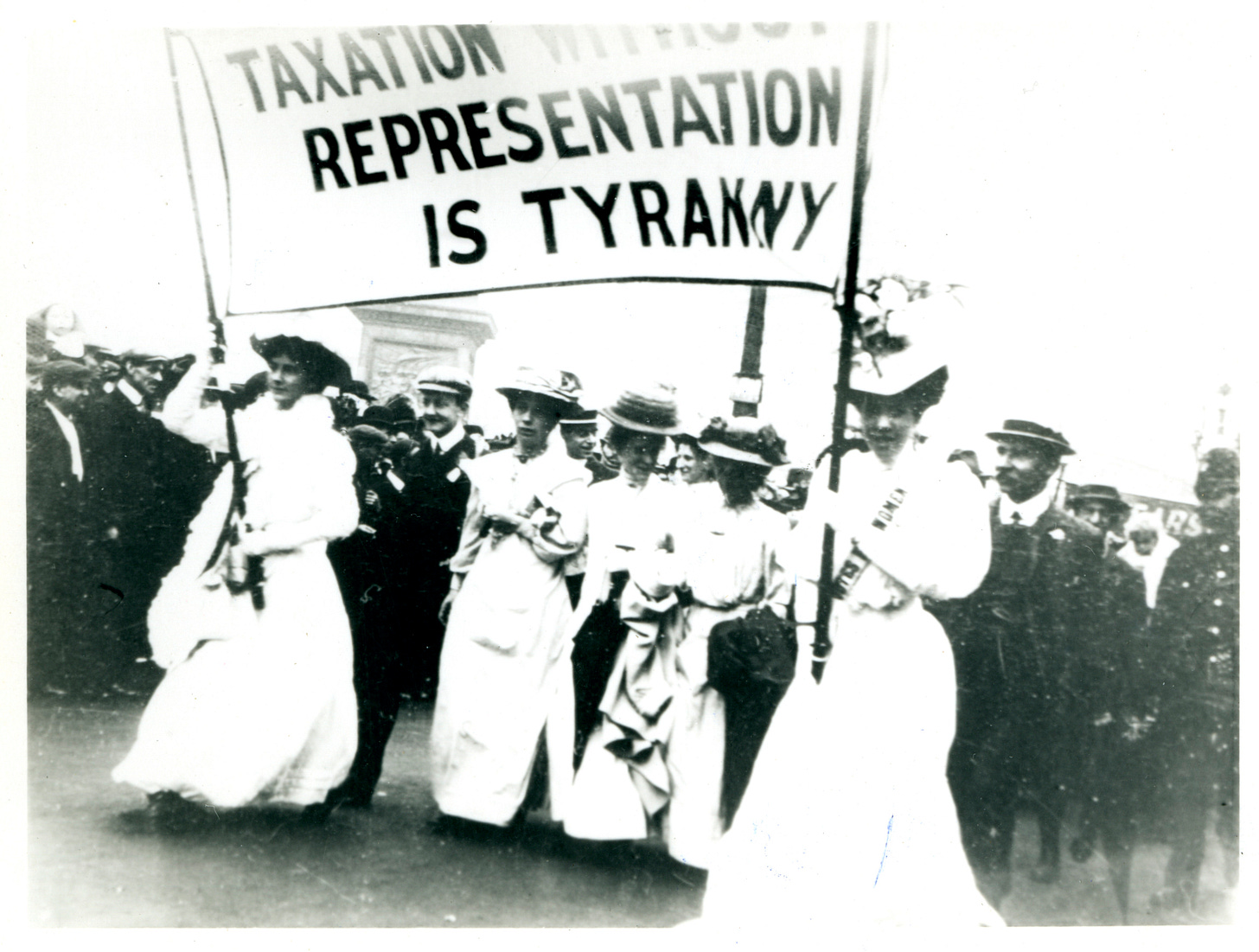It’s time to end taxation without representation
Making the principle that all of us are created equal a reality is an enormous challenge, one we’ve been trying to live up to for almost 250 years.

America’s Constitution established bold principles about the relationship between the people and their government. One of those is that while subjects are governed, citizens in democracies organize to govern themselves.
This fundamental distinction is implicit throughout the document. It secures the tools for citizen governance: universal rights to speech, assembly, and publication. It sets up juries of our peers, not of the peerage. It assigns government spending to the House, ostensibly our most representative body.
The principle of self-governance has so seeped into the bones of our country that many of us become incensed when we see it violated. Texas politicians change their districts to choose their voters. Bureaucracies and barriers prevent voter registration and voting itself. Billionaires sink fortunes into manipulation and outright bribery. These are all actions of those who would have subjects.
Most citizens have some means, if imperfect, of pushing back though state legislatures and federal elections. But not all.
Millions of Americans have limited local protections and cannot elect anyone to Congress or the presidency simply because of where they live. A full Iowa-worth of them live in Puerto Rico. An Alaska-worth of them live in Washington, D.C. A smaller group, about as many as live in the greater Cedar Rapids area, are in Guam, the Virgin Islands, and Northern Mariana Islands.

The District and these territories are American soil, and those living there are full American citizens who have all the corresponding rights and responsibilities. Or at least they should have. Instead they have a voice without a vote in the House, not even that in the Senate or the presidency, and the federal government can meddle with their affairs in ways that no state would tolerate.
If you think that difference is only academic, you haven’t been watching the news.
In August, President Trump unilaterally seized control of Washington, D.C.’s police and National Guard, and pulled hundreds of federal law enforcement officers away from their duties – like stopping international crime and terrorism – to patrol the District, make traffic stops, and chase out the homeless. His pretext for doing so was a supposed “crime emergency,” even though violent crime in Washington was at a 30 year low and falling.
The principle here, that the president can at any time and for any crime strip away local police control, should be repugnant to all Americans. And it gets worse.
D.C.’s locally elected attorney general sued to stop Trump’s military takeover. So House Republicans have introduced bills to replace him with a political appointee. Many other bills would strip away District residents’ ability to participate in their governance, and one would entirely abolish its local government. We can see why, as one resident put it, “Not being a state and not having representation here, it feels like we are powerless against literally anything anyone wants to do to us and against us.”
Those living in our other territories have similar, second-rate experiences. For example, thousands died in Puerto Rico from Hurricane Maria, but because it is not a state, it could not draw on the same resources or agreements for support. It has also been the involuntary testing ground for everything from the pill to napalm. Meanwhile, Guam and the Northern Marianas lack leverage to address the large U.S. military presence there.
Making the principle that all of us are created equal a reality is an enormous challenge, one we’ve been trying (and sometimes failing) to live up to for almost 250 years. It is tempting to be discouraged by how far we have to go, let alone when we fall back. But we take heart that so many of us, red or blue, get riled up by our failures.
That any U.S. citizen is subject to taxation without representation is one such failure. It’s past time we give our fellow citizens the statehood they need to be our equals, not our subjects.
Kelcey Patrick-Ferree and Shannon Patrick live in Iowa.
Originally published in the Press-Citizen on September 13, 2025.


Adding any new state is politically difficult, especially because each state has two senators. I believe it is also true that many of those who live in US territories, not, including Washington DC, don’t pay federal taxes at the same rate as the rest of us. I’m not sure if they want full citizenship if they have to pay full tax rates.
In the case of Washington DC, most, if not all of the territory, with the exception of the land, on which sets the capital and the White House, may be a little more, should be returned to the states from which they were originally taken. Washington DC should not be a new state.